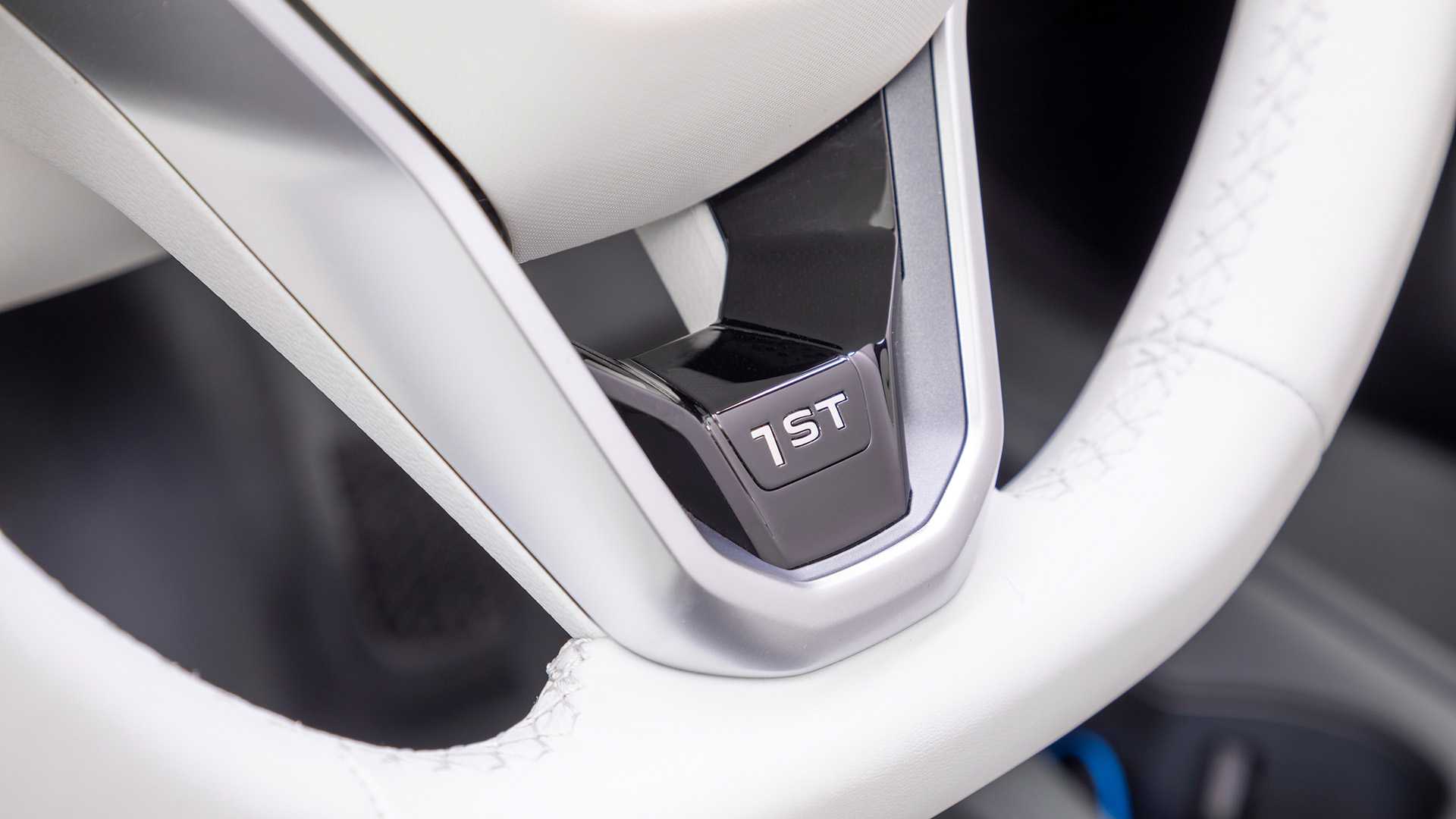Volkswagen showcases the ID.3 mass-market electric car
Volkswagen launches ID.3 electric vehicle
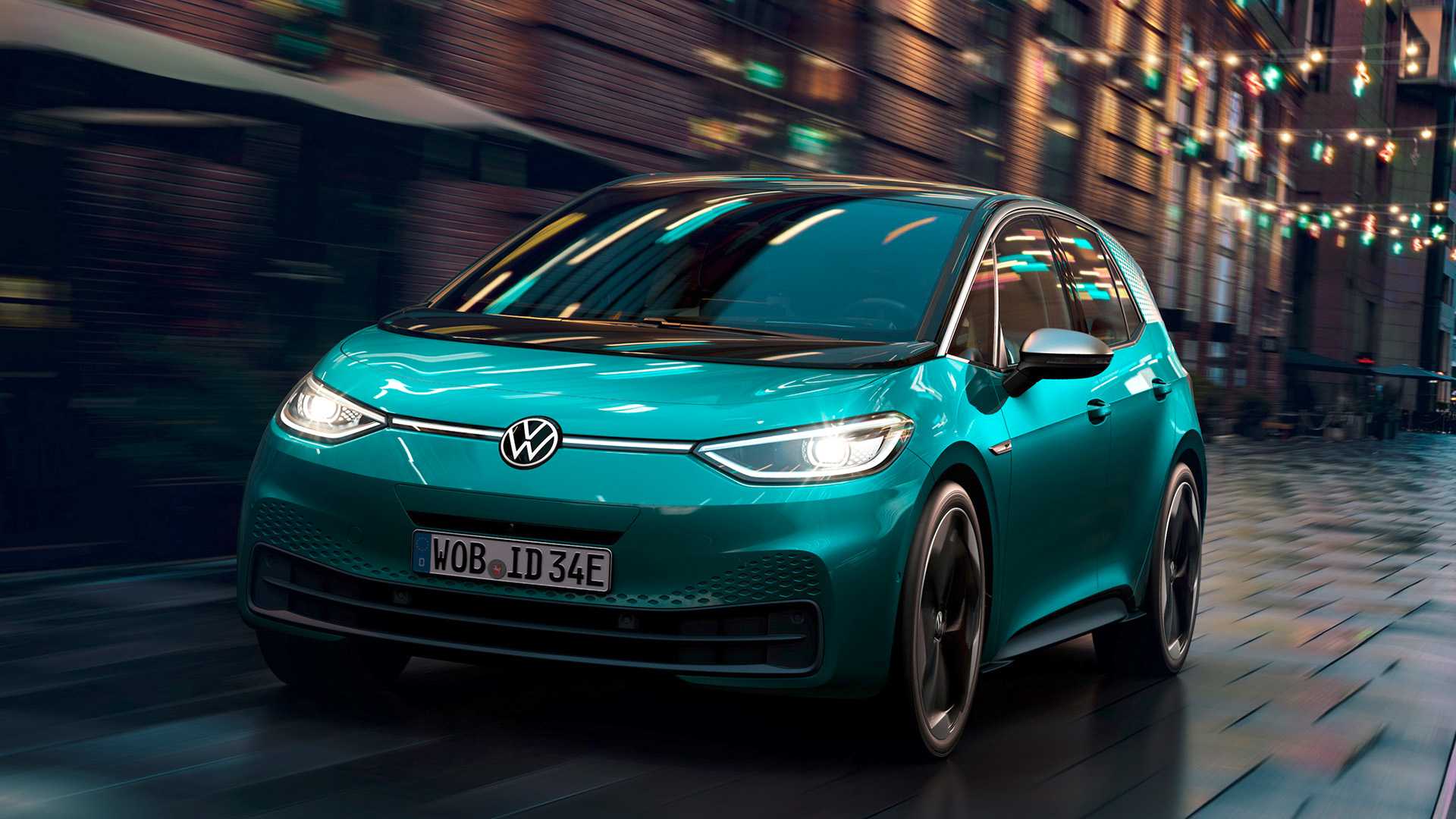
Volkswagen took the covers off the much awaited fully-electric ID.3 at the Frankfurt Motor Show. This is the first production car to be built on the all-new electric-only MEB platform. In terms of dimensions, the ID.3 is slightly larger than the Golf but the packaging of the platform frees up enough space for it to rival the Passat. It will be available with three separate battery (and consequently range) capacities. Production will start later this year and deliveries will begin in 2020.
Drivetrain:
The MEB (Modular Electric Drive Matrix) is their scalable platform for their future range of ID electric cars, it will be used on all their models such as the ID Buggy, the ID Bus and others to follow. The ID.3 will get three battery configurations – 45kWh, 58kWh and 77kWh batteries which will give the car 330km, 420km and 550km of range (on the WLTP cycle) respectively. Power outputs for the mid-range variant are 189bhp and 310Nm of torque. Acceleration figures have not been revealed but it has a top speed of 160kmph. With a 100kW fast charger it is possible to get 290km of range (WLTP) in 30 minutes. It will initially be available with a rear mounted 100 kW motor driving the rear wheels.
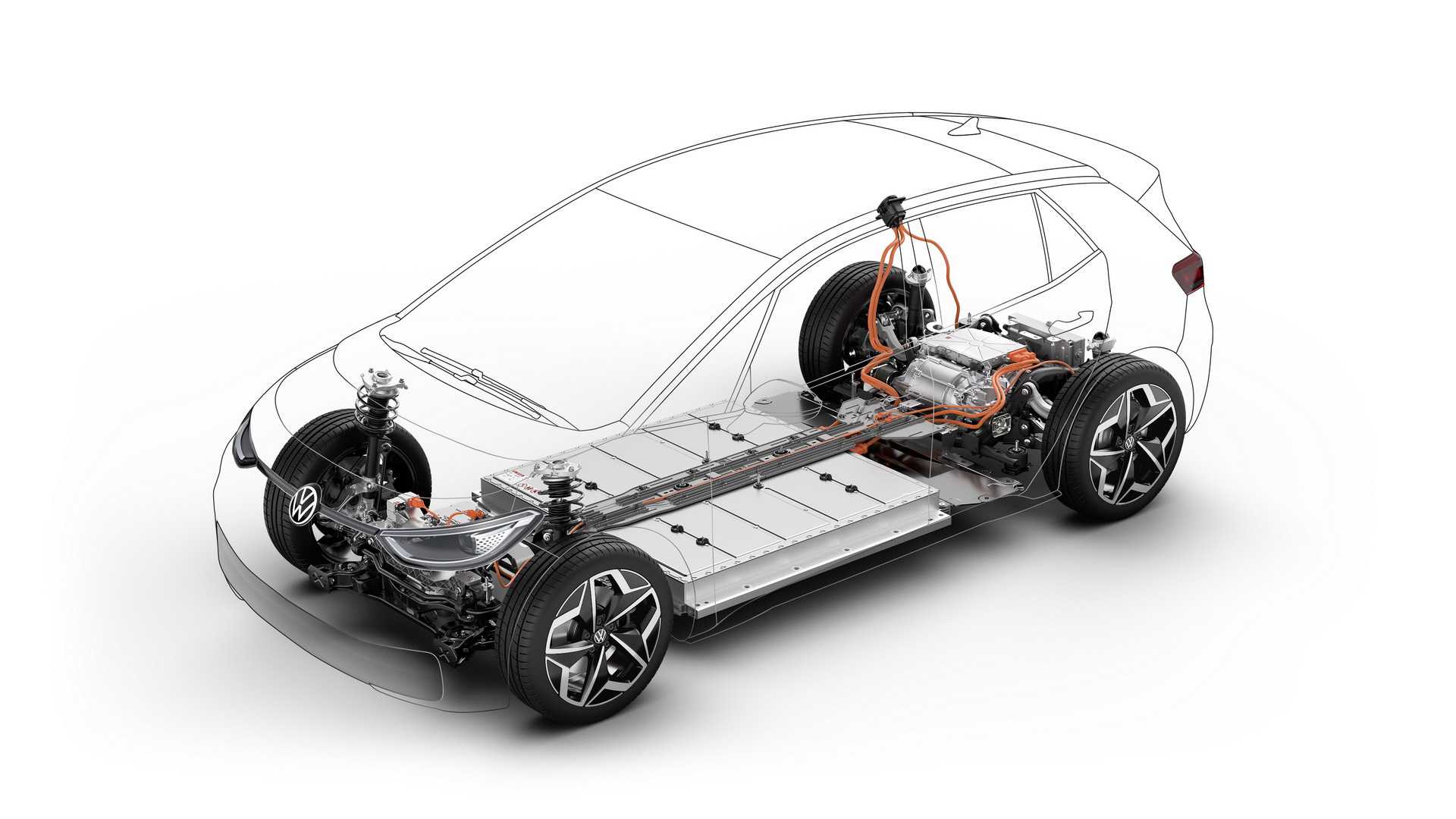
Exterior design:
The ID.3 shows a bold new direction for Volkswagen that is usually very reserved in their styling department. It definitely stands out from the crowd with swooping lines across the front and a very clean look overall, you’d definitely be able to recognise it as an EV. It’s designed to be as slippery as possible to maximise efficiency with short overhangs and a steeply raked windscreen as well as a flat underfloor to aid aerodynamics. Volkswagen has chosen to launch a hatchback first, instead of jumping on to the SUV bandwagon with their first electric MEB car.
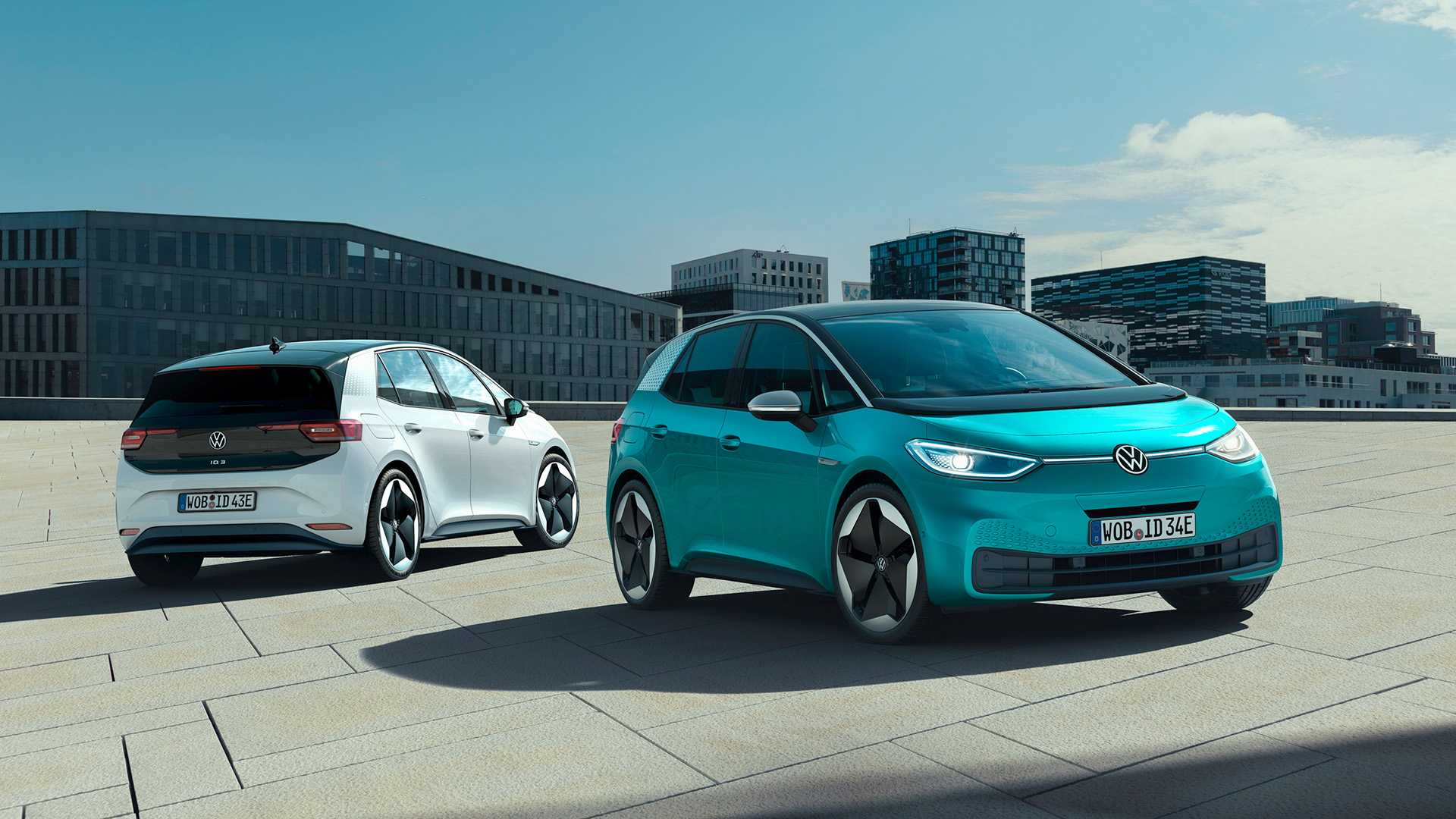
Interior:
One of the most exciting things about the ID is the space on offer, it is about the size of a Golf on the outside but has as much space as a Passat on the inside thanks to clever packaging – the electric motor and components take up much less space than an internal combustion engine. The interior design is a departure from the simple cabins we are used to with VWs. There are splashes of colours on the dash, white plastics and it’s even got play and pause logos on the accelerator and brake pedals. The drive selector is different too, it’s mounted on the instrument cluster above the indicator stalks. There are two screens on the inside, one is the digital drivers display and a larger central infotainment screen. The ID.3 has an interior free of any physical buttons except the window controls and hazard light switch, there is an array of touch sensitive buttons that provide haptic feedback and other functions are controlled via the central screen. There will be smartphone connectivity as well that will let you control certain functions of the car with your phone.
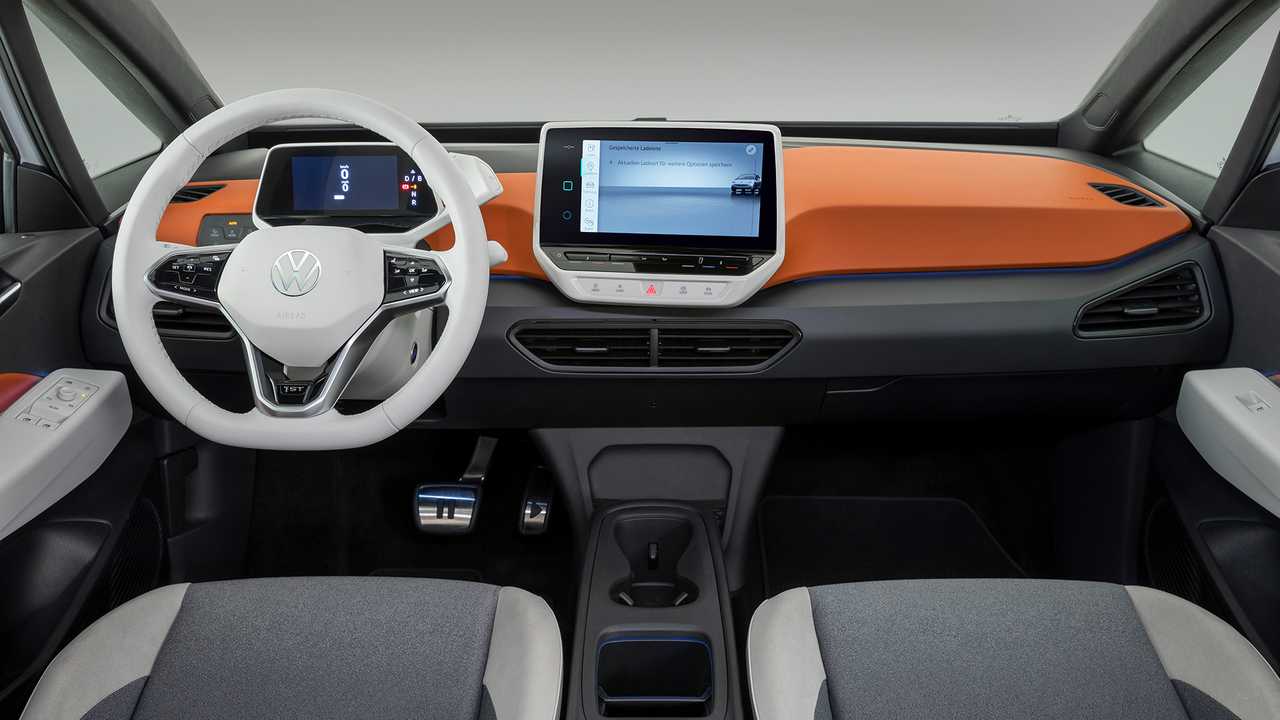
Variants:
There will be a total of 3 battery options with various trim levels among them, Volkswagen started preorders for it’s launch edition ‘ID.3 1’st’ in May 2019, it comes with the 58kWh battery and gets 3 variants-
‘ID.3 1’st’ which gets seat heating, heated steering wheel, built in navigation and 18-inch rims.
‘ID.3 1’st Plus’ which adds keyless entry, adaptive cruise control, ambient lighting, Matrix LED lights and 19-inch rims.
‘ID.3 1’st Max’ adds a Beats sound system, heads up display, panoramic sunroof and 20 inch rims.
we can expect other battery sizes to get similar configurability and features.
VW aims to make electric mobility something for the masses and plans to sell around 3 million EV’s a year by 2025 across it’s brands and pricing will play a major factor on that.
the base variant comes in around €30,000 (Rs 24,00,000, excluding Indian taxes and duties) and that’s around the same as a top spec Golf in Europe.
Production of the ID.3 starts in November with customer deliveries expected to start in the summer of 2020,
